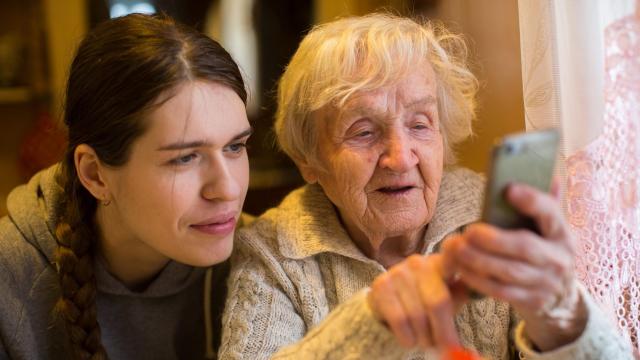When you’re in elementary school, having friends from a different grade can be an indicator of your social status. Hanging around with kids in the grade below yours might be seen as a negative, but if you manage to get in with the older kids, you must be doing something right. Interesting, considering that either way, we’re only talking about an age difference of a year or two.
As adults, it seems strange to limit our social circles to people born within a few years of us. In fact, most of us probably have become friends with people from completely different generations — and that’s a good thing, according to several studies. Here are some of the benefits of intergenerational friendships, and why you work on forming some of your own (if you haven’t already).
Intergenerational friendships are a learning opportunity
In a recent article for Inc., Jessica Stillman sifted through the research on intergenerational friendships and found plenty of evidence that they’re mutually beneficial. The most obvious benefit is that they give both people the chance to learn new things — from wisdom and insight into the past, to background on newer trends. These idea is supported by findings from the UC Berkeley Greater Good Science Centre, as well as a 70-year Harvard happiness study.
Intergenerational friendships make us more resilient
With so much talk of the importance of resilience over the past year, this benefit of intergenerational friendships is more relevant than ever. But how does that work? According to Stillman, “by offering you a much longer perspective on whatever your current struggles may be, [friendships with older people] can make setbacks feel less catastrophic and permanent.” In addition, friendships with younger people can open you up to new ways of looking at your problems.
Research from the AARP provides additional insight:
In a recent survey, it found that 61 per cent of those with significantly older friends claimed their intergenerational friendships helped them see other perspectives. Fifty-four per cent of those with a significantly younger friend said the same. Around the same percentage of both groups (37 and 38 per cent respectively) said their friendships help them appreciate their experiences more.
Intergenerational friendships make us more open-minded
Although there’s no instant cure for our implicit biases, we can do things to decrease them — and forming intergenerational friendships is a good way to do so.
“Being around different people day-to-day changes those hidden connections in our brain,” writer and researcher Rose Eveleth explained on a recent episode of NPR’s “Life Kit” podcast. “Which means that the more you can diversify the people in your life, the more likely you are to scrape away those implicit biases you might not want to hold onto.”
Not to mention that the societal bias against older people is pretty messed up to begin with, given that we’re all constantly ageing and will (ideally) end up in that demographic someday ourselves. So be the kind of friend to an older (or younger) person that you’d like to one day have yourself.

Leave a Reply
You must be logged in to post a comment.